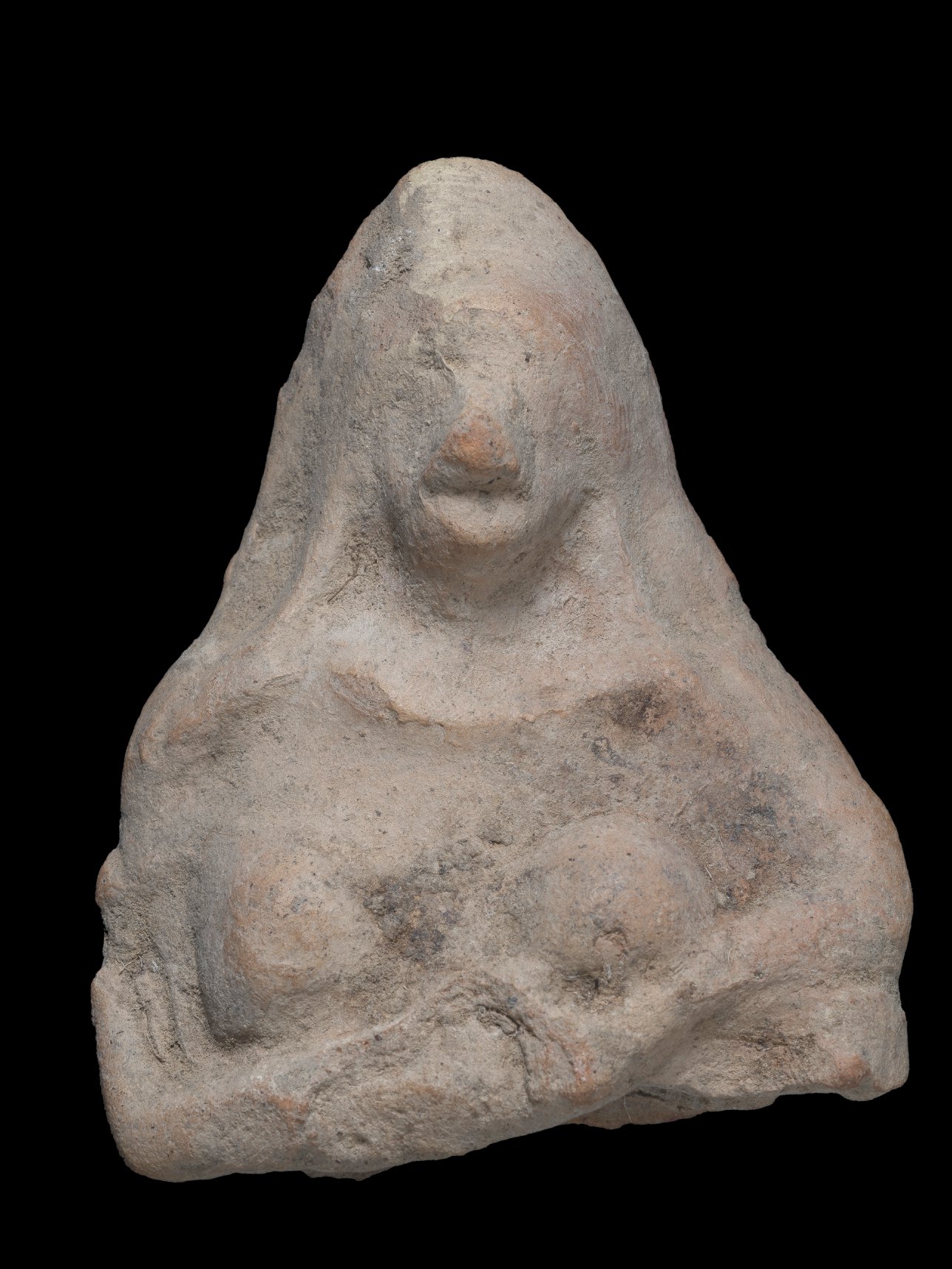
A couple of weeks ago, a young boy was on a family hiking trip along the HaBesor stream
in southern Israel when he came across an oblong stone that looked different than those around it.
Turns out, it was. The child, 11-year-old Zvi Ben-David, had discovered an ancient figurine that predates the birth of Jesus.
Standing just seven centimeters high, the object depicts a bare-breasted woman with her hands wrapped around her waist. Archeologists estimate the object to be 2,500 years old, dating back to the end of the Iron Age. Only one other object like it has ever been found in Israel.
Ben-David’s mother, a professional tour guide with an archeologist’s eye, promptly brought the figurine to the Israel Antiquities Authority (IAA). Experts identified the artifact as an ancient symbol of fertility.
An ancient figurine discovered in southern Israel. Courtesy of the Israel Antiquities Authority.
“Ceramic figurines of bare-breasted women are known from various periods in Israel, including the First Temple era,” archaeologist Oren Shmueli and Debbie Ben Ami, an IAA curator of the Iron Age and Persian periods, said in a joint statement. “They were common in the home and in everyday life, like the hamsa symbol today, and they apparently served as amulets to ensure protection, good luck, and prosperity.”
The researchers explained that because infant mortality was common during this time and medical knowledge was rudimentary, people turned to spiritualism for support. “In the absence of advanced medicine, amulets provided hope and an important way of appealing for aid,” they added.
11-year-old Zvi Ben-David with the ancient figurine. Courtesy of the Israel Antiquities Authority.
The figurine has since been moved to the country’s National Treasures collection where it’s undergoing further analysis. (The same collection houses the other ancient amulet.)
Meanwhile, young Zvi was presented with a certificate for his detective work. “The exemplary citizenship of young Zvi Ben-David will enable us to improve our understanding of cultic practices in biblical times, and man’s inherent need for material human personifications,” Shmueli and Debbie Ben Ami said.